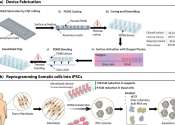Culture (Latin: cultura, lit. "cultivation") is a term that has many different inter-related meanings. For example, in 1952, Alfred Kroeber and Clyde Kluckhohn compiled a list of 164 definitions of "culture" in Culture: A Critical Review of Concepts and Definitions. However, the word "culture" is most commonly used in three basic senses:
When the concept first emerged in eighteenth- and nineteenth-century Europe, it connoted a process of cultivation or improvement, as in agriculture or horticulture. In the nineteenth century, it came to refer first to the betterment or refinement of the individual, especially through education, and then to the fulfillment of national aspirations or ideals. In the mid-nineteenth century, some scientists used the term "culture" to refer to a universal human capacity. For the German nonpositivist sociologist Georg Simmel, culture referred to "the cultivation of individuals through the agency of external forms which have been objectified in the course of history".
In the twentieth century, "culture" emerged as a concept central to anthropology, encompassing all human phenomena that are not purely results of human genetics. Specifically, the term "culture" in American anthropology had two meanings: (1) the evolved human capacity to classify and represent experiences with symbols, and to act imaginatively and creatively; and (2) the distinct ways that people living in different parts of the world classified and represented their experiences, and acted creatively. Following World War II, the term became important, albeit with different meanings, in other disciplines such as cultural studies, organizational psychology and management studies.[citation needed]









